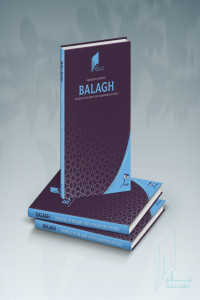Codification of Islamic Family Law in Malaysia
Codification of Islamic Family Law in Malaysia
ABSTRACT Malaysia is a multi-ethnic, multi-legal, and multilingual country. Malaysia's history has gone through some critical periods as it has been on a trade route from pre-Islamic to the present. Although there are multiple opinions on reaching the religion of Islām to Malaysia, Islam reached peacefully through trade relations with the Arab and Indian-Muslim traders and by dint of Sufis around the 13th century on the Strait of Malacca, then widespread across the Malay Peninsula from the 14th century. Malacca Sultanate, which ruled between 1400-1511, played an essential role in the development and spread of Islām in the Malay Peninsula. Therefore, Islam has affected various cultural and traditional aspects of the people of the Malay peninsula. Moreover, Islamic Law principles have started to manage the legal affairs of society, including family relations. However, this process was interrupted by the western colonialists, first the Dutch and then the British. During the colonialist period, the Malaysian legal system was administered mainly by the colonialists while its demographic structure deteriorated simultaneously. Nonetheless, the strong adherence of the Malay Muslims to their religion and tradition helped them pursue their own way and develop Islamic family law during and after British colonialism. Consequently, Malaysia, which entered the Dutch and British colonies, adopted a mixed law, which also impacted Islamic law. Especially family law has a special place in this society. Malaysia has two family law systems, one for Muslims and the other for non-Muslims. The Law governing non-Muslims is applied in the civil courts. In contrast, that governing Muslims (Islamic Sharīʿah Law) are involved in the religious courts (the Sharīʿah courts), and Muslims appeal to Sharīʿah courts in family law matters. Today, the importance of family law and the need for it are evident in issues concerning family law, such as marriage, divorce, and the age of marriage.
Keywords:
Codification Islamic Family Law, Sharī‘ah, Malaysia,
___
- Ahmad Fauzi Abdul Hamid, Che Hamdan Che Mohd Razali, The Changing Face of Political Islam in Malaysia in the Era of Najib Razak, Sojourn: Journal of Social Issues in Southeast Asia, 2015, vol. 30, no.2.
- al-Ashqar, Umar Sulayman, Tārikh al-Fiqh al-Islāmi, Kuwait: Maktabat al-Falāḥ, 1982.
- al-Mu’jam al-Wajīz, Cairo: Ministry of Education, 1992.
- al-Zuhaylī, Wahbah, al-Fiqh al-Islāmī wa Adillatuhu, Syria: Dār al-Fikr, 1985.
- Ammar Fadzil, Religious Tolerance in Islam: Theories, Practices and Malaysia's Experiences as a Multi Racial Society, Journal of Islam in Asia, 2012 Vol.8, no.3.
- Andrew Abraham, The Transfer of the Straits Settlements: A Revisionist Approach to the Study of Colonial Law and Administration, Journal of the Hong Kong Branch of the Royal Asiatic Society, 2002 Vol. 42.
- Azizah binti Mohd, An Appraisal of the Application of Fiqh Al- Hanafi Under Islamic Family Law (Federal Territories ) Act 1984, IIUM Law Journal, 2019, vol. 27, no.2.
- Basyiroh, Marwa Atika, The implementation of marriageable age provision in Malaysia and Indonesia: Comparative Study of Regulation number 1 year 1974 and Enactment Islamic Family Law of Malacca number 12 year 2002, Undergraduate thesis, Universitas Islam Negeri Maulana Malik Ibrahim, 2018.
- Farid Sufian Shuaib, Administration of Islamic Law and human rights: The basis and its trajectory in Malaysia, Al-Jāmi‘ah: Journal of Islamic Studies, 2018, Vol.56, no.2.
- Farid Sufian Shuaib, The Islamic Legal System in Malaysia, Washington International Law Journal, 2012, Vol.21 No.92.
- Fatah Yasin, Raudlotul Firdaus, Analysis of polygamy provision under the Islamic Family Law (Federal Territories) Act 1984; with referrence to the Qur’an and Sunnah, IIUM Law Journal, 2010, Vol. 18 No.2.
- Foo Yet Ngo and Kirani Dhaliwal Y N Foo and Partners, Family Law in Malaysia: An Overview,
- Başlangıç: 2021
- Yayıncı: Karabük Üniversitesi
Sayıdaki Diğer Makaleler
Achieving social and economic welfare in Medina In the era of Rashıdin Caliphs
The meaning of place names in the book of Proverbs by Abu Hilal Al-Askari
Aladdin GÜLTEKİN, Bikhtiyar AHMEDARSH
The early repayment effect on the price of Musharakah Mutanaqisah due to early settlement
Mohammed Ebrahim El-sherbiny Sakr SAKR, Al-meqdad AL-SHAMI
Women and Power: Critical Reading in “The Forgotten Queens Of Islam” by Mernissi Fatima
Codification of Islamic Family Law in Malaysia
Selman Zahid ÖZDEMİR, Miszairi Bin SİTİRİS, Mohamad Sabri B ZAKARIA
